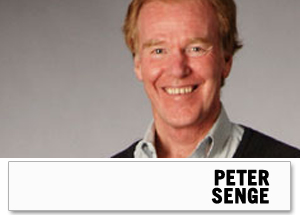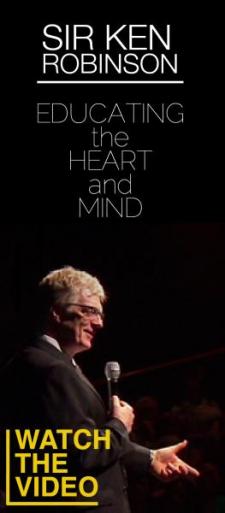Biography

The Journal of Business Strategy (1999) named Peter Senge one of the 24 people who have had “the greatest influence on business strategy over the last 100 years”. The Financial Times (2000) named him as one of the world's "top management gurus". Business Week (2001) rated him as one of The Top Ten Management Gurus.
Peter Senge was born in 1947. In the 1960s, he majored in aeronautics for his B.S. at Stanford, where he also studied philosophy. In 1972, he completed his M.S. on Social Systems Modelling at MIT and, in 1978, his PhD on Management at the MIT Sloan School of Management, where he became Director of the Center for Organizational Learning in 1989.
Senge lives with his wife and their two children in Massachusetts. He is a senior lecturer in Leadership & Sustainability at MIT and author or co-author of several bestselling books. An unassuming and inspiring presence, he describes himself as an 'idealistic pragmatist'. He explores abstract ideas of systems theory while advocating that human values be brought to the workplace and other diverse forms of organization. He has lectured extensively throughout the world, translating the abstract ideas of systems theory into practical tools for better understanding of economic and organizational change.
Senge has worked with leaders in business, education, health care, and government. The focus of his work is on decentralizing the role of leadership in organizations, with the belief that this approach enables all members of the organization to work productively toward common goals. He is the founding chair of the Society for Organizational Learning (SoL), a global, non-profit, member-governed organization, the 1997 successor to MIT’s Center for Organizational Learning.
SoL is “an intentional learning community of organizations, individuals, and local communities” that helps with the communication of ideas between large corporations. SoL’s website describes the organization in words that can also describe Senge and the focus of his work: “SoL is devoted to the interdependent development of people and their institutions in service of inspired performance and meaningful results. ...Individuals and institutions can create together that which they cannot create alone.”
Senge’s life includes what he calls “three fundamental elements: study, practice, and serve.” Before attending Stanford, he learned meditation at Tassajara, the oldest Japanese Zen Buddhist monastery in the USA. He recommends contemplative practice and, since 1996, has maintained his discipline of twice-daily meditation. Senge believes that “science and spirituality both are important”, along with the “third pillar”, society.
He has developed his personal philosophies out of “a continuous process of reflection. ...Only two questions have mattered to me personally. One is what is really needed in the world and the second is what’s really important to me and how these two intersect? It’s always been a reflective process—spiralling around these two poles.... It’s like there really are no decisions that you need to make. You just have to be open and reflect and the next turn in the path becomes clear.”





